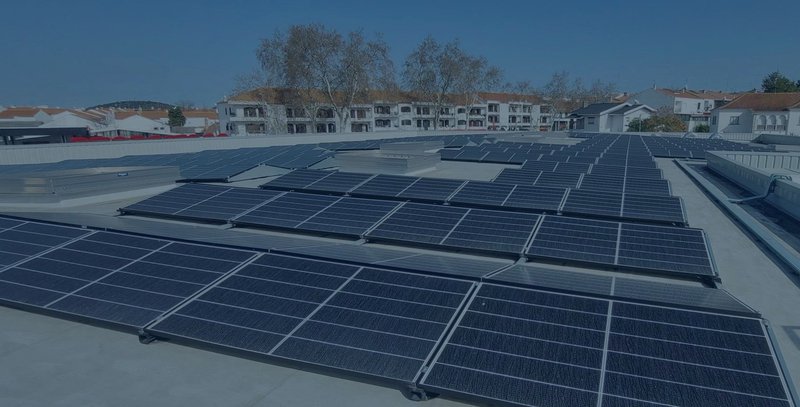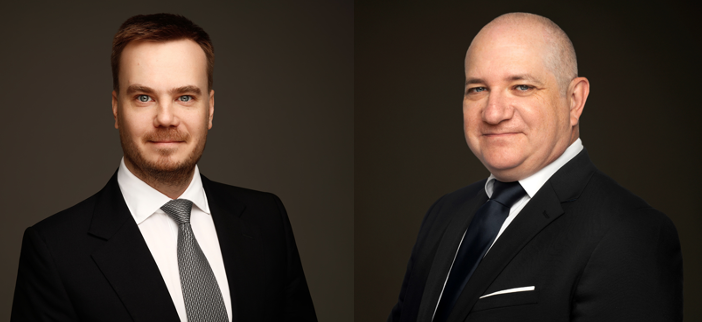Following the announcement of Blackbrook's retail facilities in Portugal being enhanced to achieve BREEAM Very Good ratings, Iberian Property conducted an exclusive interview to discuss in depth the importance of having an ESG strategy. Below are the main insights from Arvi Luoma (AL), CEO & Co-Founder of Blackbrook, and Olivier Lebrun (OL), Portfolio & ESG Manager at Blackbrook:
- Would you say there has been a shift for investors where ESG was once a ‘nice to have’ to now it being a ‘deal breaker’?
OL - Over the past five years ESG has evolved from asking simple questions like ‘does the facility have solar panels?’ to much more advanced analysis, a far broader range of ESG requirements, as well as detailed certifications. At Blackbrook, our entire thesis is on investing in future-proof supply chain infrastructure and that means meeting the latest ESG requirements, anticipating future trends, and improving existing assets to meet these criteria. It has been at the core of what we do from inception.
From a global perspective, ESG is increasingly becoming a deal breaker.
Unfortunately, it most often requires favourable economics for important transitions to become commonplace, such as higher rent, cheaper financing, a wider pool of potential occupiers, the ability to raise capital, higher values. The economics have become much clearer for tenants, and it is easier for them to see the value in it. For example, investing into solar energy and rain-water recycling is now easier justify.
Social pressure has made it an absolute requirement for companies on all sides - investors, lenders, tenants - to ensure ESG optimised business practices. We are in a position where it's the right thing to do and you get tangible and intangible benefits from doing it.
If you were to look back at the industry ten years ago, very few buildings would have an ESG certification. Now it would be uncommon to see a new building not being certified during the development process.
Fast forward ten more years, we expect ESG to become an industry standard, where if you can’t operate to a certain level of ESG specifications, you simply can’t operate at all.
- To what extent can your ESG policies create value for companies?
OL - Our ESG strategy has been in place from inception as we have always been conscious of how big an impact the real estate sector has on the environment, and how easily so much can be done to improve it. Not only do we seek to provide the market with the highest quality ESG optimised assets with our new developments, but we also actively engage ESG audits on all our existing assets to identify ways to improve them to reduce energy consumption, increase green energy usage, and meet the latest ESG criteria and expectations. This is an ongoing process that we provide free to our tenants.
AL - Olivier does a fantastic job of leveraging the latest PropTech, audits and his own deep expertise to provide advice to our tenants on what they can do to improve their position. As a committed long-term investor, we have the capital to invest in improvements in our assets that our tenants may require. It’s very much a long-term partnership for mutual benefit.
- Can you tell us a little bit about how you optimised your portfolio in Portugal?
OL - Absolutely. We acquired a portfolio of grocery stores in Portugal around 18 months ago on a build to suit basis for an occupier. Since its completion, photovoltaic panels have been installed on the roofs of the assets, targeting carbon neutral operations. This, along with further investments such as electric car charging points and more efficient water taps, mean that the assets will now achieve BREEAM Very Good ratings. As a team, we are very proud of the enhancements we have made and look forward to replicating this across the other acquired assets in our portfolio.

- Looking ahead, how will your company invest in Iberian capital markets? Is ESG increasing your preferences for the features of the assets, or is location still the key factor?
AL - Investing in real estate for us is always about the fundamentals, and that includes ESG aspects. A strong market with attractive growth drivers and a strategic location are important, but we also ensure that we can build new assets that meet the latest ESG criteria – even if this is not standard practice yet. Even for existing assets, we prefer those where we see interesting opportunities to optimise and improve them post-acquisition from an ESG perspective.
- What are your expectations for the Iberian real estate market in 2023? Do you have any ongoing projects in the pipeline?
AL - We are certainly keen to invest more in Iberia. Spain and Portugal were among our first investment markets, and we continue to explore opportunities there and have assets under construction which should come online later this year.
Spain is clearly the larger and more established real estate market; however, we do see interesting prospects in Portugal, which is perhaps a country under-represented on the international front.
There is some very interesting activity and potential around Lisbon and Porto for example. I'd expect the Iberian market to represent a meaningful percentage of our total portfolio going forward.
Today, the market is challenging with the significant rise in interest rates and capital market turmoil. In these environments, the lenders also retreat which has a further impact on the investment market. Buyer-seller expectations have widened dramatically. It will normalise, but it is hard to say exactly when and to what level, but most likely not back down to the levels we experienced in a decade-long zero interest rate environment.
At Blackbrook, we are in a great position with substantial capital available, and the ability to partner with developers to bring new assets to the market, or to provide quick sale-leaseback financing to companies who need capital. The huge cost of capital increase has had a material impact on all companies across the credit spectrum.
Alternative sources of financing become even more interesting, such as sale-leasebacks or build-to-suit transactions for new facilities.
A lot of companies and investors are having a liquidity squeeze, they're under significant near-term pressure, and we can be there to execute transactions quickly, providing the much-needed capital, and at the same time grow our portfolio and become a long-term landlord for the tenants as the continue to grow and weather the storm.
